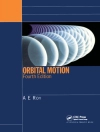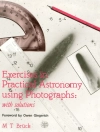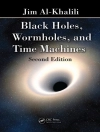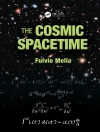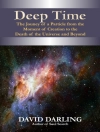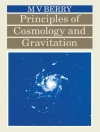Oceans were long thought to exist in all corners of the Solar System, from carbonated seas percolating beneath the clouds of Venus to features on the Moon’s surface given names such as ‘the Bay of Rainbows” and the ‘Ocean of Storms.’ With the advent of modern telescopes and spacecraft exploration these ancient concepts of planetary seas have, for the most part, evaporated. But they have been replaced by the reality of something even more exotic. For example, although it is still uncertain whether Mars ever had actual oceans, it now seems that a web of waterways did indeed at one time spread across its surface.
The ‘water’ in many places in our Solar System is a poisoned brew mixed with ammonia or methane. Even that found on Jupiter’s watery satellite Europa is believed similar to battery acid. Beyond the Galilean satellites may lie even more ‘alien oceans.’ Saturn’s planet-sized moon Titan seems to be subject to methane or ethane rainfall. This creates methane pools that, in turn, become vast lakes and, perhaps, seasonal oceans. Titan has other seas in a sense, as large shifting areas of sand covering vast plains have been discovered. Mars also has these sand seas, and Venus may as well, along with oceans of frozen lava. Do super-chilled concoctions of ammonia, liquid nitrogen, and water percolate beneath the surfaces of Enceladus and Triton? For now we can only guess at the possibilities.
‘Alien Seas’ serves up part history, part current research, and part theory as it offers a rich buffet of ‘seas’ on other worlds. It is organized by location and by the material of which various oceans consist, with guest authors penning specific chapters. Each chapter features new original art depicting alien seas, as well as the latest ground-based and spacecraft images. Original diagrams presents details of planetary oceans and related processes.
قائمة المحتويات
Acknowledgments.- Foreword by James Cameron.- 1. Introduction: Oceans on Earth and Elsewhere by Michael Carroll.- Chapter 2. Chasing the Lost Oceans of Venus by David Grinspoon.- Chapter 3. Oceans on Mars by Timothy Parker.- Chapter 4. Seas of Molten Rock by Rosaly Lopes.- Chapter 5. Jupiter’s Water Worlds: Water Lurks Beneath the Surfaces of Europa, Ganymede, and Callisto by Robert Pappalardo.- Chapter 6. Oceans At The Outer Limits: Enceladus, Outer Moons, Pluto by John Spencer.- Chapter 7. Sand Seas of the Solar System by Jani Radebaugh.- Chapter 8. Exotic Seas: Titan’s Methane/Ethane Lakes by Karl Mitchell.- Chapter 9. The Seas of Saturn by Kevin Baines and Mona Delitsky.- 10. The Alien Seas of Earth: Astrobiological Implications by Chris Mc Kay.- Chapter 11. Seas of the Milky Way by Jeffrey Bennett.- About the Authors.
عن المؤلف
Michael Carroll is a space artist and science writer. He has done commissioned work for NASA and the Jet Propulsion Laboratory. His art has appeared in several hundred magazines throughout the world, including National Geographic, Time, Asimov’s Science Fiction, Smithsonian, Astronomy, and others. One of his paintings was flown aboard Russia’s MIR space station in 1995. Recent murals include the Denver Museum of Nature and Science, Fleet Science Center in San Diego, and Lockheed/Martin. Carroll is a Fellow of the International Association for the Astronomical Arts and has written articles and books on topics ranging from space to dinosaurs to Biblical archaeology. His articles have appeared in Popular Science, Astronomy, Astronomy Now (UK), Sky & Telescope, and a host of children’s magazines. In 2007, he was awarded the Lucien Rudaux Award for lifetime contribution to the astronomical arts. Carroll has authored two books already for Springer, entitled ‘The Seventh Landing’ (2009) and ‘Drifting on Alien Winds’ (2011).
Dr. Rosaly Lopes is a Senior Research Scientist at NASA’s Jet Propulsion Laboratory, where she is also a Lead Scientist for Geophysics and Planetary Geosciences. An expert on volcanism on Earth and the planets, Dr. Lopes currently studies ice volcanism on Saturn’s moon Titan. She worked for several years on the Galileo mission studying the active volcanoes of Jupiter’s moon Io, where she discovered 71 previously unknown active volcanoes and was named in the Guinness Book of World Records as having discovered more active volcanoes than anyone else. She has published four books, ‘Volcanic Worlds: Exploring the Solar System Volcanoes’ (Springer 2004), ‘The Volcano Adventure Guide’ (CUP 2005), ‘Io After Galileo’ (Springer 2007), ‘Alien Volcanoes’ (John Hopkins University Press, 2008), ‘Volcanoes’ (One World Publications, 2011). She has received many awards, including the Carl Sagan Medal from the American Astronomical Society, inrecognition for her work communicating science to the public, the NASA Exceptional Service Medal, and the Wings Women of Discovery Award in Air and Space. She is a Fellow of the American Association for the Advancement of Science, the Royal Geographical Society, and a member of numerous professional organizations.


